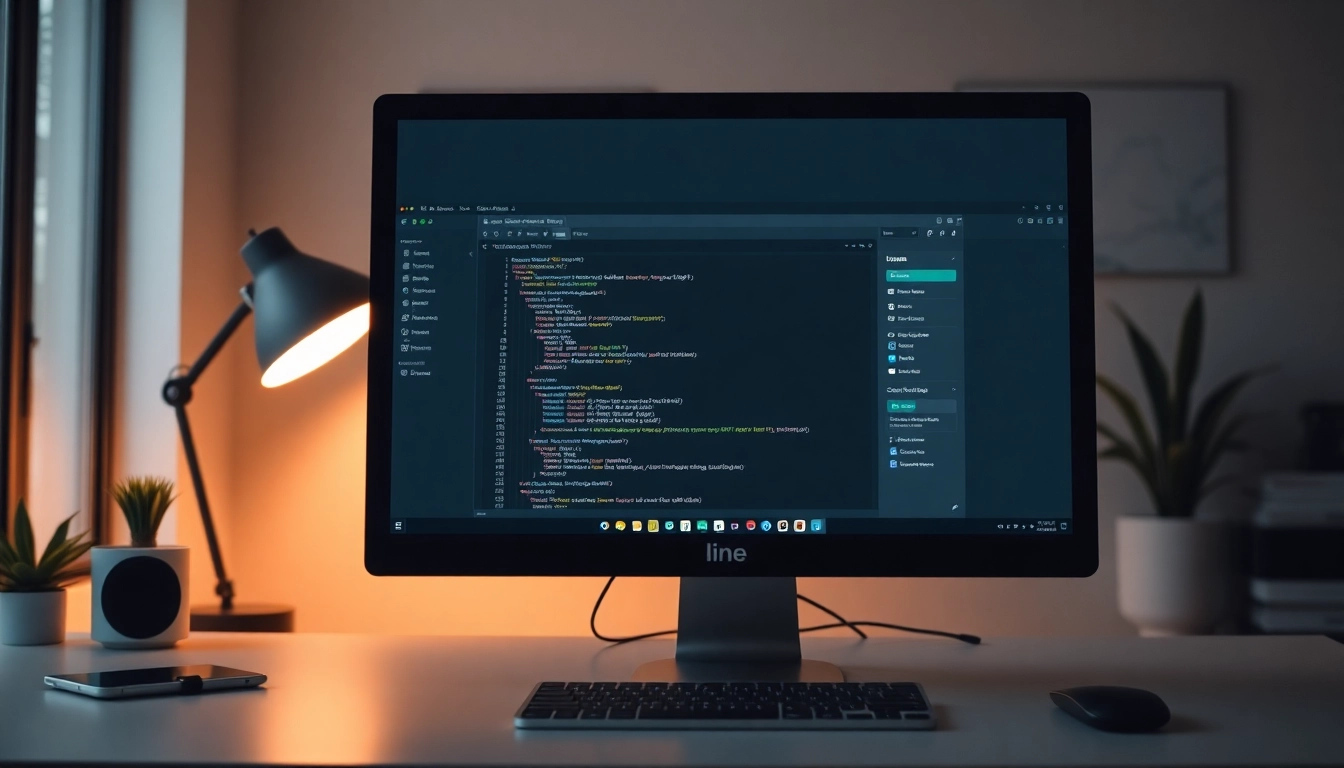Introduction to PHP and Its Importance
PHP, which stands for Hypertext Preprocessor, is a widely-used open-source scripting language especially suited for web development. It is embedded within HTML and can communicate with databases, making it a powerful tool for creating dynamic websites. It powers a significant portion of the web, with websites like Facebook and WordPress relying on its capabilities. If you’re contemplating a career in web development or wanting to enhance your skill set, enrolling in the Best PHP course with projects can provide hands-on experience that distinguishes you in the job market.
What is PHP?
PHP is a server-side scripting language created primarily for web development but also used as a general-purpose programming language. It allows developers to create dynamic website content, session tracking, database integration, and unleash a plethora of other functionalities. It is easy to learn for beginners, yet offers advanced features that appeal to professionals, including object-oriented programming, and the ability to handle complex tasks.
Benefits of Learning PHP
Understanding PHP comes with a myriad of advantages. Firstly, it is free and open-source, which promotes a vast community and resources available online. Secondly, PHP facilitates seamless integration with various databases like MySQL, making data handling straightforward and efficient. Additionally, its versatility and wide applicability in web development provide ample job opportunities across many industries.
Overview of PHP Projects You Can Build
With PHP’s capabilities, you can develop a range of applications from simple to complex. Common projects include:
- Content management systems (CMS)
- E-commerce platforms
- Custom web applications
- Web-based APIs
- Data-driven websites
The best way to learn PHP is through project-based experience, offering practical knowledge that is essential in today’s job market.
Essential PHP Concepts and Tools
Core PHP Syntax and Structures
Getting started with PHP requires an understanding of its syntax, which resembles C and Perl. Basic concepts include:
- Variables and data types
- Operators (arithmetic, comparison, logical)
- Control structures including conditional statements and loops
- Functions and how to define them
Mastering these core concepts enables you to write organized and efficient PHP code.
Setting Up Your PHP Environment
To work with PHP, you need a local development environment. Popular setups include:
- XAMPP: A package that includes PHP, MySQL, and Apache for local server testing.
- MAMP: Similarly provides an environment for macOS and Windows users.
- Docker: Ideal for those wanting more advanced configurations and container management.
Once your environment is set up, you can start creating PHP applications on your local machine before deploying them to live servers.
Key Tools for PHP Development
Various tools can aid your PHP development, making the process smoother and more efficient:
- Code Editors: Tools like Visual Studio Code or Sublime Text provide syntax highlighting, auto-completion, and debugging capabilities.
- Version Control: Git is essential for managing code versions in collaborative environments.
- Frameworks: PHP frameworks like Laravel or Symfony streamline the development process, offering pre-built modules and libraries.
Utilizing these tools can greatly enhance your efficiency as a PHP developer.
Project-Based Learning: Engaging PHP Projects
Building Your First Web Application
A great way to learn PHP is by building your first web application. Start with a simple contact form, which entails:
- Creating an HTML form for users to input their data.
- Using PHP to process the form data and validate inputs.
- Storing data in a MySQL database or sending it via email.
- Implement error handling to ensure proper feedback for users.
This project teaches essential skills such as form handling, validations, and database operations.
Advanced Projects: E-commerce and Blogs
Once you’ve built foundational projects, dive into more complex applications like an e-commerce store or a blog. Key components include:
- Implementing user authentication for secure logins.
- Creating an admin panel for content management.
- Integrating payment gateways for e-commerce applications.
- Optimizing the database for fast data retrieval and updates.
These projects help solidify your PHP knowledge while illustrating how to handle real-world scenarios.
Integrating PHP with Frontend Technologies
Modern web applications require integration between PHP and frontend technologies such as HTML, CSS, and JavaScript. This can be accomplished through:
- Using PHP to generate dynamic HTML content.
- Leveraging AJAX to send asynchronous requests to PHP scripts.
- Implementing RESTful APIs in PHP that communicate with frontend frameworks like React or Vue.js.
Bridging PHP with modern frontend technologies enables the creation of interactive and user-friendly interfaces.
Best Practices for PHP Programming
Code Quality and Maintainability
Writing high-quality, maintainable code is critical in software development. Some strategies include:
- Adhering to coding standards such as PSR (PHP Standards Recommendations).
- Using comments and clear naming conventions for functions and variables.
- Implementing automated testing to ensure your code behaves as expected.
These practices promote better collaboration and error reduction, ultimately creating more reliable applications.
Security Practices in PHP
Security is paramount when developing applications with PHP. Adopt measures to protect against:
- SQL Injection: Use prepared statements and parameterized queries.
- XSS Attacks: Sanitize user inputs and output data.
- Session Hijacking: Implement secure session management with HTTPS.
By prioritizing security, you create applications that users can trust.
Performance Optimization Techniques
Optimizing PHP applications for better performance involves several strategies:
- Utilizing opcode caching to speed up the execution of scripts.
- Minimizing database queries and optimizing them with proper indexing.
- Implementing content delivery networks (CDNs) to serve static resources quicker.
Effective performance strategies contribute to a smoother user experience and reduced server load.
Path Forward: Next Steps and Resources
Continuing Your PHP Education
Learning PHP is an ongoing journey. After mastering the basics, consider deepening your knowledge through advanced topics such as:
- PHP frameworks (Laravel, Symfony)
- API development with PHP
- Integrating PHP with other languages and technologies
Continuing education through structured courses can provide direction and aid in skill development.
Online Communities and Forums
Engaging with online communities can greatly enhance your learning experience. Platforms like:
- PHP.net – Official PHP documentation and community
- Stack Overflow – Great for troubleshooting and advice
- Reddit – Subreddits focused on PHP for discussions and sharing resources
Participating in these communities helps you stay updated on the latest trends and best practices.
Recommended Additional Learning Tools
Aside from project-focused learning, numerous resources can augment your PHP education. Recommended tools include:
- Books: Comprehensive guides on PHP syntax, theories, and best practices.
- Video Tutorials: Visual learners may benefit from platforms like YouTube or specialized coding bootcamps.
- Online Coding Challenges: Participate in challenges on platforms like HackerRank to sharpen your skills.
Utilizing these resources expands your knowledge and strengthens your coding abilities, empowering you to take on more sophisticated projects.



